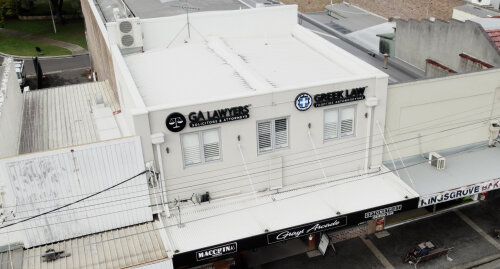Best Wrongful Death Lawyers in Sydney
Share your needs with us, get contacted by law firms.
Free. Takes 2 min.
List of the best lawyers in Sydney, Australia
About Wrongful Death Law in Sydney, Australia:
Wrongful Death refers to a situation where a person dies due to the negligence, wrongful act, or default of another party. In Sydney, Australia, there are laws in place to provide compensation to the surviving family members of the deceased individual to cover financial losses and emotional suffering.
Why You May Need a Lawyer:
You may need a lawyer in cases of Wrongful Death to help you navigate the legal process, gather evidence, negotiate with insurance companies, and ultimately seek fair compensation for your loss. A lawyer can also provide support and guidance during this challenging time.
Local Laws Overview:
In Sydney, Australia, the laws surrounding Wrongful Death are governed by the Civil Liability Act 2002 and common law principles. These laws outline the criteria for establishing liability, determining the compensation amount, and the time limits for filing a claim.
Frequently Asked Questions:
1. What is considered a Wrongful Death?
A Wrongful Death occurs when a person dies as a result of another party's negligence, wrongful act, or default.
2. Who can file a Wrongful Death claim in Sydney, Australia?
In Sydney, the deceased person's spouse, children, and parents are typically eligible to file a Wrongful Death claim.
3. What types of damages can be recovered in a Wrongful Death claim?
Damages that can be recovered in a Wrongful Death claim may include medical expenses, funeral costs, loss of income, and compensation for emotional suffering.
4. What is the time limit for filing a Wrongful Death claim in Sydney?
In Sydney, the time limit for filing a Wrongful Death claim is generally within three years from the date of death.
5. How can a lawyer help with a Wrongful Death claim?
A lawyer can help gather evidence, negotiate with insurance companies, and represent you in court to seek fair compensation for your loss.
6. What is the role of insurance companies in Wrongful Death claims?
Insurance companies may be involved in Wrongful Death claims to provide compensation to the surviving family members of the deceased individual.
7. Are there any exceptions to the time limit for filing a Wrongful Death claim?
In certain circumstances, such as if the cause of death was not immediately apparent, courts may grant an extension to the time limit for filing a Wrongful Death claim.
8. What should I do if I believe my loved one's death was the result of Wrongful Death?
If you believe your loved one's death was the result of Wrongful Death, it is important to contact a lawyer experienced in handling such cases to discuss your legal options.
9. What are the potential outcomes of a Wrongful Death claim?
The potential outcomes of a Wrongful Death claim include financial compensation for the surviving family members, closure and accountability for the responsible party, and possible changes to prevent similar incidents in the future.
10. How can I find a reputable lawyer for my Wrongful Death claim?
You can find a reputable lawyer for your Wrongful Death claim by asking for recommendations, researching online, and scheduling consultations with potential candidates to discuss your case.
Additional Resources:
For additional resources related to Wrongful Death in Sydney, Australia, you may consider contacting the Law Society of New South Wales or the New South Wales Civil and Administrative Tribunal.
Next Steps:
If you believe you have a Wrongful Death claim and are in need of legal assistance, we recommend reaching out to a reputable lawyer in Sydney, Australia who specializes in handling Wrongful Death cases. They can guide you through the legal process and help you seek the compensation you deserve.
Lawzana helps you find the best lawyers and law firms in Sydney through a curated and pre-screened list of qualified legal professionals. Our platform offers rankings and detailed profiles of attorneys and law firms, allowing you to compare based on practice areas, including Wrongful Death, experience, and client feedback.
Each profile includes a description of the firm's areas of practice, client reviews, team members and partners, year of establishment, spoken languages, office locations, contact information, social media presence, and any published articles or resources. Most firms on our platform speak English and are experienced in both local and international legal matters.
Get a quote from top-rated law firms in Sydney, Australia — quickly, securely, and without unnecessary hassle.
Disclaimer:
The information provided on this page is for general informational purposes only and does not constitute legal advice. While we strive to ensure the accuracy and relevance of the content, legal information may change over time, and interpretations of the law can vary. You should always consult with a qualified legal professional for advice specific to your situation.
We disclaim all liability for actions taken or not taken based on the content of this page. If you believe any information is incorrect or outdated, please contact us, and we will review and update it where appropriate.

















